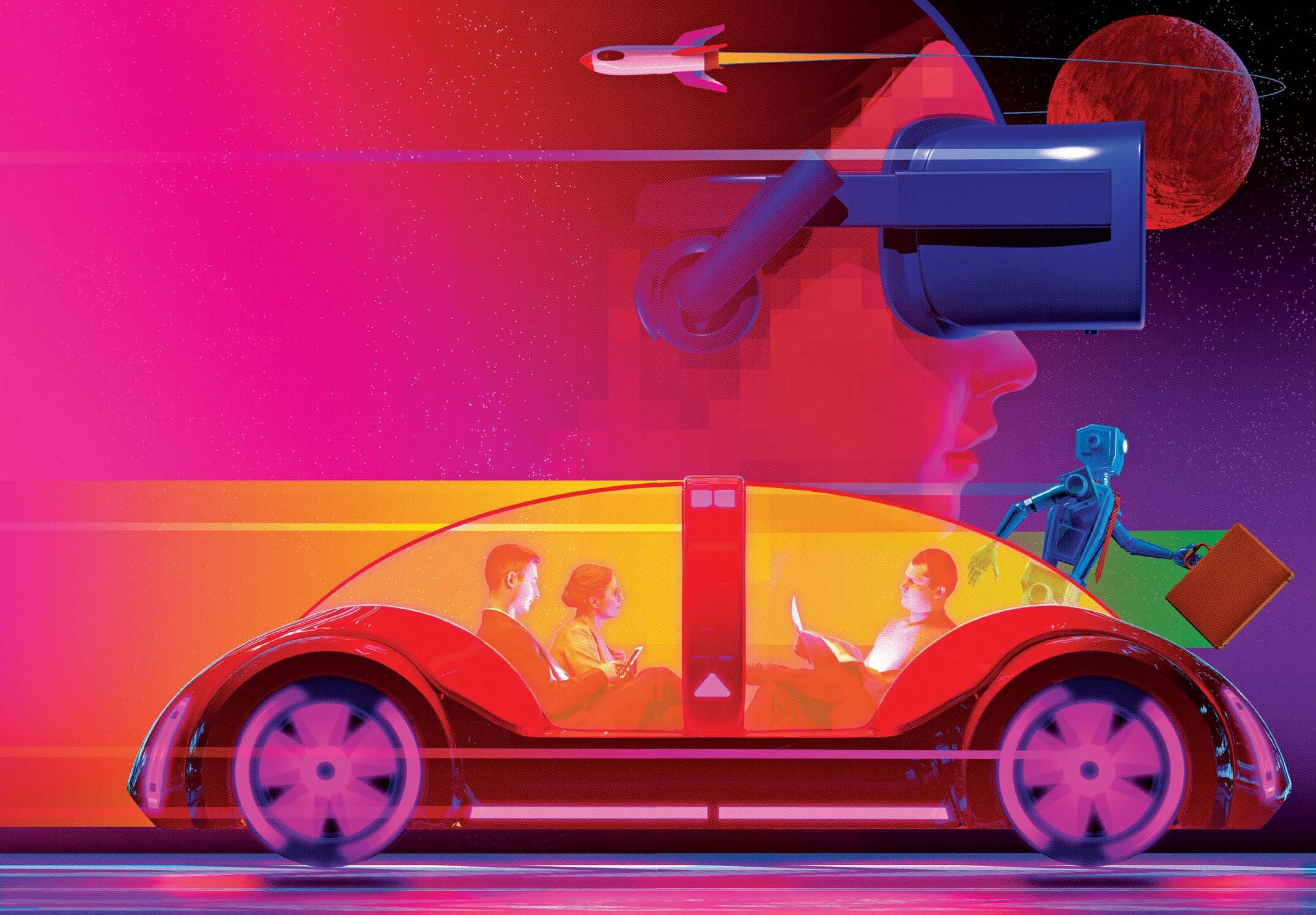
Every day, it seems, a new techy term pops up, leaving us non-techies asking questions in what sounds like a foreign language. "What is an NFT?" for example. And "Where, exactly, is the metaverse?" If you're confused, you're not alone.
While it might feel as if technology is speeding up, it follows a predictable formula called Moore's Law, which has correctly predicted the pace of human advancements in technology for nearly six decades. Moore's Law suggests that the number of transistors on a computer chip will double about every two years. This is a reliable indicator of how much and how quickly technology will change.
And while Moore's Law has held true for all this time, it hasn't stopped other key trends in tech from accelerating far faster than computer chips can keep pace.
From a new space race pitting billionaires like Elon Musk and Jeff Bezos against each other to big advancements in the artificial intelligence, or AI, that powers robots and self-driving cars, we will answer some crucial questions to keep you on the cutting edge of the future of tech.
QUESTION NO.1
WHEN WILL I HAVE A SELF-DRIVING CAR?
LIKE THE JETPACKS sci-fi writers have promised us since the 1920s, the vision of a self-driving car that whisks us to work while we read the news has proved to be more problematic to implement in practice than in theory.
So-called advanced driver-assistance system (ADAS) features are available in some cars, such as Tesla's electric cars, but they're not what would be considered self-driving. Tesla's autopilot tool can help you stay in your lane while driving on the highway, but it's graded only a Level 2 on the five-stage system of automation developed by SAE International, a driving standards organization. Level 5 would be a full self-driving experience with hands off the steering wheel. We aren’t there yet.
This story is from the {{IssueName}} edition of {{MagazineName}}.
Start your 7-day Magzter GOLD free trial to access thousands of curated premium stories, and 9,000+ magazines and newspapers.
Already a subscriber ? Sign In
This story is from the {{IssueName}} edition of {{MagazineName}}.
Start your 7-day Magzter GOLD free trial to access thousands of curated premium stories, and 9,000+ magazines and newspapers.
Already a subscriber? Sign In

Demonstrators by Krishna Reddy
1968 Multicolour viscosity, Print on paper

Notes from Grief Camp
Every summer, more than a hundred children come together to spend a weekend swimming, climbing and canoeing. They also learn to deal with death

Six Places Cheese Lovers Should Visit
Ancient caves, monasteries, and other must-sees for fromage fans

THE LAND OF SUPERCEN TENARIANS
A remote region of Azerbaijan claims to have many extremely long-lived residents. What is their secret, or is it just a myth?

The Whistle Blowers
My grandparents had a distinctive way of communicating

"THE NEXT AIRCRAFT WILL CRASH ON LANDING"
THE JET WAS ALMOST OUT OF FUEL. THE PILOTS' ONLY OPTION WAS A MANOEUVRE NO ONE HAD EVER ATTEMPTED.

The Secrets in our Genes
Genomic sequencing tests can reveal much about your unique physiology. But are they worth it?

GOOD NEWS FROM AROUND THE WORLD
MENTAL HEALTH When her son was arrested last year, Tambudzai Tembo's mind went to dark thoughts of suicide.

Into the Inferno
A gas station owner has seconds to react when a car crashes into a gas pump

THE CLIMATE CHANGERS
THESE PLACES ARE LEADING THE WAY TO A FUTURE FREE OF FOSSIL FUELS